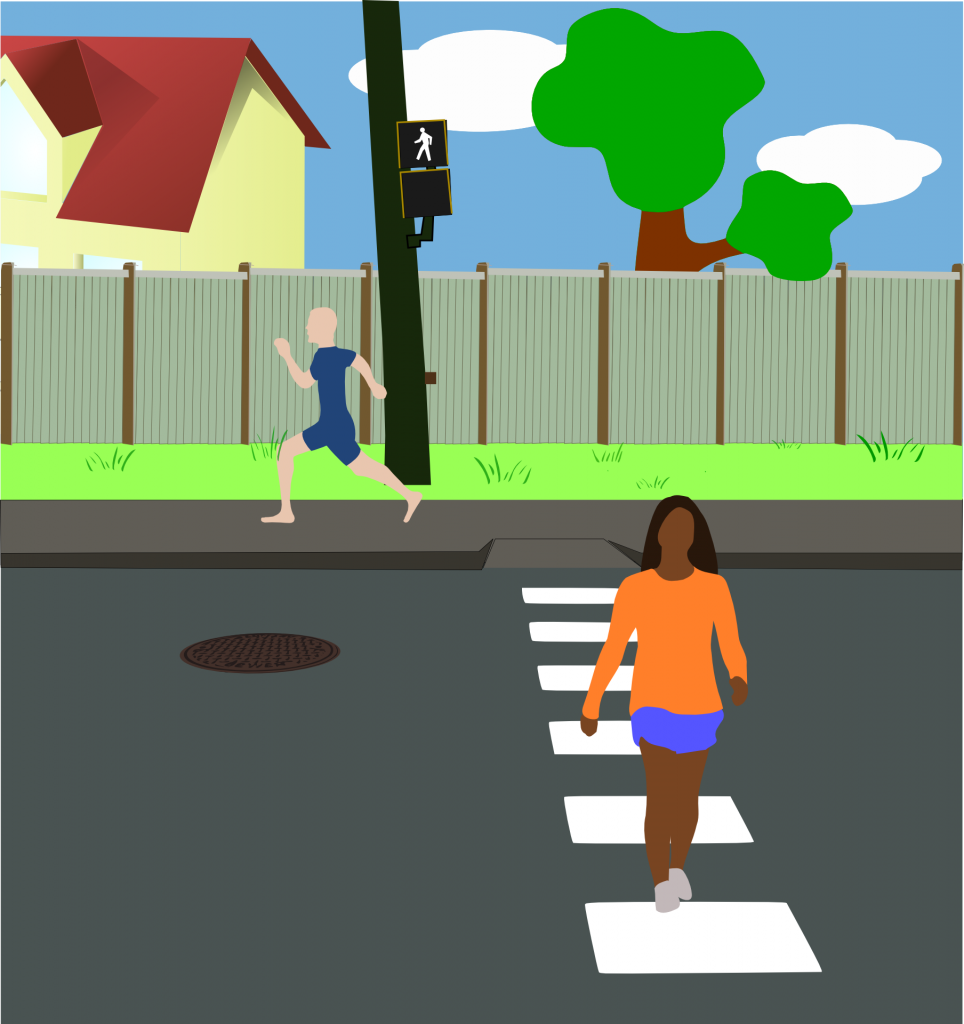 I don’t know about you, but I sometimes confuse how things are with how they should be, holding tightly to the latter in defiance of the former. Some very stubborn behavior has accompanied my insistence on enforcing “the principle of the thing.”
I don’t know about you, but I sometimes confuse how things are with how they should be, holding tightly to the latter in defiance of the former. Some very stubborn behavior has accompanied my insistence on enforcing “the principle of the thing.”
Yesterday, I was walking with a friend and where the trail crossed a busy road. There was a button you could push for bright strobe lights to flash in both directions at the crosswalk, warning cars to stop and yield to pedestrians. After pushing the button, I stepped into the street, walking at a normal pace, even though cars were approaching.
 My friend kind of grabbed me as he ran across the first half of the street and seconds later, a car zoomed through the intersection behind us without ever stopping. I was like, “Hey! You were supposed to stop! It’s the law!” My friend had been watching and noticed the car was not slowing down, hence his quickened pace. I remarked, that left to myself and my principle of the thing, that but for him I could have ended up lying on the side of the road (if I had the good fortune of surviving), muttering, “But the lights were flashing! He was supposed to stop!”
My friend kind of grabbed me as he ran across the first half of the street and seconds later, a car zoomed through the intersection behind us without ever stopping. I was like, “Hey! You were supposed to stop! It’s the law!” My friend had been watching and noticed the car was not slowing down, hence his quickened pace. I remarked, that left to myself and my principle of the thing, that but for him I could have ended up lying on the side of the road (if I had the good fortune of surviving), muttering, “But the lights were flashing! He was supposed to stop!”
It wouldn’t matter if I were right, if I was dead. Sure, they could document it on my gravestone, “The lights were flashing. He was right.” But sometimes we need to look past that, just like my friend looked past the light pole at what was actually happening and noticed the fast-approaching car swerving toward the shoulder as we entered the crosswalk.
 Crossing the street is one thing, but this desire to be right and to cling to what we think should be, surfaces in all kinds of intersections in life, in every manner of pursuit and relationship. We need to recognize what is happening in the moment, adjust to that reality, and take appropriate action. But our minds aren’t always adequate to guide us—we need help.
Crossing the street is one thing, but this desire to be right and to cling to what we think should be, surfaces in all kinds of intersections in life, in every manner of pursuit and relationship. We need to recognize what is happening in the moment, adjust to that reality, and take appropriate action. But our minds aren’t always adequate to guide us—we need help.
Thankfully, the Holy Spirit knows the full story in every situation; He knows the hearts (and life histories) of people. Besides loving God, our top priority, according to Jesus, is to love people (Matthew 22:36-40). And the Holy Spirit knows what love looks like in every context.
 What are our motivations for being right? To enforce our wills? To be respected by others? If we are righteous, is being recognized for being right really that important? Did Jesus try to enforce that He was right? He was wrongly reviled, but did not respond in kind. What happened to Him was totally wrong—on so many counts…but look what He did with it! Jesus had made it a practice to constantly confer with His Father, who held the only opinion that mattered to Him, and His humble obedience turned into exaltation (Philippians 2).
What are our motivations for being right? To enforce our wills? To be respected by others? If we are righteous, is being recognized for being right really that important? Did Jesus try to enforce that He was right? He was wrongly reviled, but did not respond in kind. What happened to Him was totally wrong—on so many counts…but look what He did with it! Jesus had made it a practice to constantly confer with His Father, who held the only opinion that mattered to Him, and His humble obedience turned into exaltation (Philippians 2).
As we cultivate our relationship with God, receive and believe His love for us, and humbly care about others in every interaction, the importance of being seen as right will fade, as love and wisdom take precedence. We’ll enjoy God’s good opinion, and we might just keep ourselves from getting run over!

